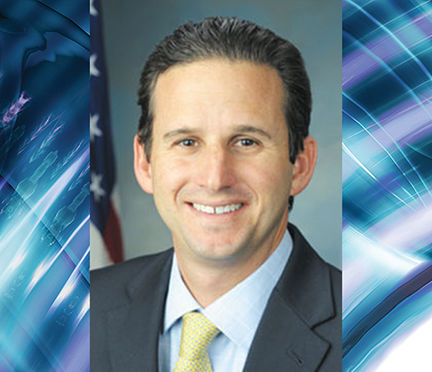LIHUE — More than 21,000 federal employees in Hawaii — and hundreds on Kauai — could be on the receiving end of a raise next year. U.S. Sen. Brian Schatz, along with Sen. Ben Cardin of Maryland, proposed a 3.8
LIHUE — More than 21,000 federal employees in Hawaii — and hundreds on Kauai — could be on the receiving end of a raise next year.
U.S. Sen. Brian Schatz, along with Sen. Ben Cardin of Maryland, proposed a 3.8 percent pay increase to federal workers for 2016 to reward those who underwent non-paid days off, and little or no salary increases during The Great Recession years.
“Federal employees have endured freeze, furloughs, and a government shutdown,” Schatz wrote in a statement to The Garden Island. “Their pay has failed to keep up with the cost of living over the last five years. The federal government needs to retain and attract top talent; and in order to do so, we need to provide fair compensation.”
Schatz’s office couldn’t provide an estimate of what the overall increase would cost, but praised the employees for their hard work.
“Hawaii’s federal employees are some of the hardest-working public servants in the country,” Schatz said, adding in a press release that federal employees have lost over $1 billion dollars in salary and benefits due to sequestration and a three-year pay freeze from January 2011 to December 2013.
Karen Lightfoot, a representative for Schatz’s Washington D.C. office, said often times bills aren’t scored — or given a cost estimate — when they’re introduced. The Congressional Budget Office, which provides Congress with nonpartisan analyses for economic and budget decisions, often scores them after their introduction — so an estimate on the raises might not exist at this point, she said.
But Lightfoot said the bill covers about 86 percent of the federal civilian workforce. Specifically, general schedule employees and those in Foreign Service, Veterans Health Administration, and prevailing rates, which are blue-collar type employees, like plumbers and welders.
It doesn’t cover military. Nor does it affect air traffic controllers, senior executive level employees, postal service employees, and most intelligence community employees.
Kauai has 530 federal employees, according to the Department of Labor.
Stefan Alford, Pacific Missile Range Facility spokesman, said the bill would affect about 120 federal employees at the base. He declined to comment, as did U.S. Department of the Interior employees at the Daniel K. Inouye Kilauea Point Lighthouse, which shut down for nearly a week in October 2013 during sequestration, or automated budget cuts.
Some experts said the proposal is an indicator of good things.
University of Hawaii economics professor Byron Gangnes said the raises could be a sign of a healthy economy. It’s also a raise that targets the middle-class demographic that statistically spends extra discretionary income immediately — meaning the pay bump would likely go right back into Hawaii’s economy.
“I think we do know that if you provide more income for workers, they’re going to spend a good chunk of it and that has ripple effects throughout the economy,” he said. “Public sector workers, or families of modest means, probably respond the most because they have the need.”
Whereas the financially secure may take additional money and invest or save it, middle-class families stock pile their shelves and go out on the town, he said.
“The most immediate impact that is going to come about is when people take that money out into the community and they buy groceries and go to movies,” he said.
The average salary for a federal worker in Hawaii was $68,826 in 2013, according to the DOL.
The proposal was praised by union representatives.
“After three years of pay freezes, followed by two years of meager 1 percent raises, this legislation is clearly needed,” Gregory Junemann, president of the International Federation of Professional and Technical Engineers stated in a press release. “The federal government is committed to bringing federal compensation back to an acceptable level.”
“All too often, public servants are disparaged, denigrated and forced to bear the brunt of deficit reduction,” Cardin added in the release. “We need to strengthen and encourage our public workforce.”
While the bill might not have a dollar amount attached to it yet, Steve Ellis, vice president for Tax Payers for Common Sense, in Washington D.C., said whatever they end up being, they’ll be a small factor in the country’s overall $3 trillion-plus budget.
And budgets are capped, so they can’t go over designated amounts. If raises are approved, something else will likely be left off to account for it, he said.
“It’s really popular to talk about giving raises and people’s salaries, but you have to view it in the proper context,” he told TGI. “You have to look at the overall federal budget.
“We’re not going to reject it out of hand, we’re not going to embrace it,” he added about the nonpartisan group’s stance on the proposal. “We’ll have to see if it fits with the overall economy.”
Both senators introduced similar bills last year — 3.3 percent for federal raises. Neither passed. The proposal still has to clear the House and Senate. Asked if there was any concern about giving raises with a recession not far in the rear-view, Schatz didn’t indicate there was.
“This bill is a step in the right direction, and I hope that the Republican-led Congress will move the legislation forward,” he said.


